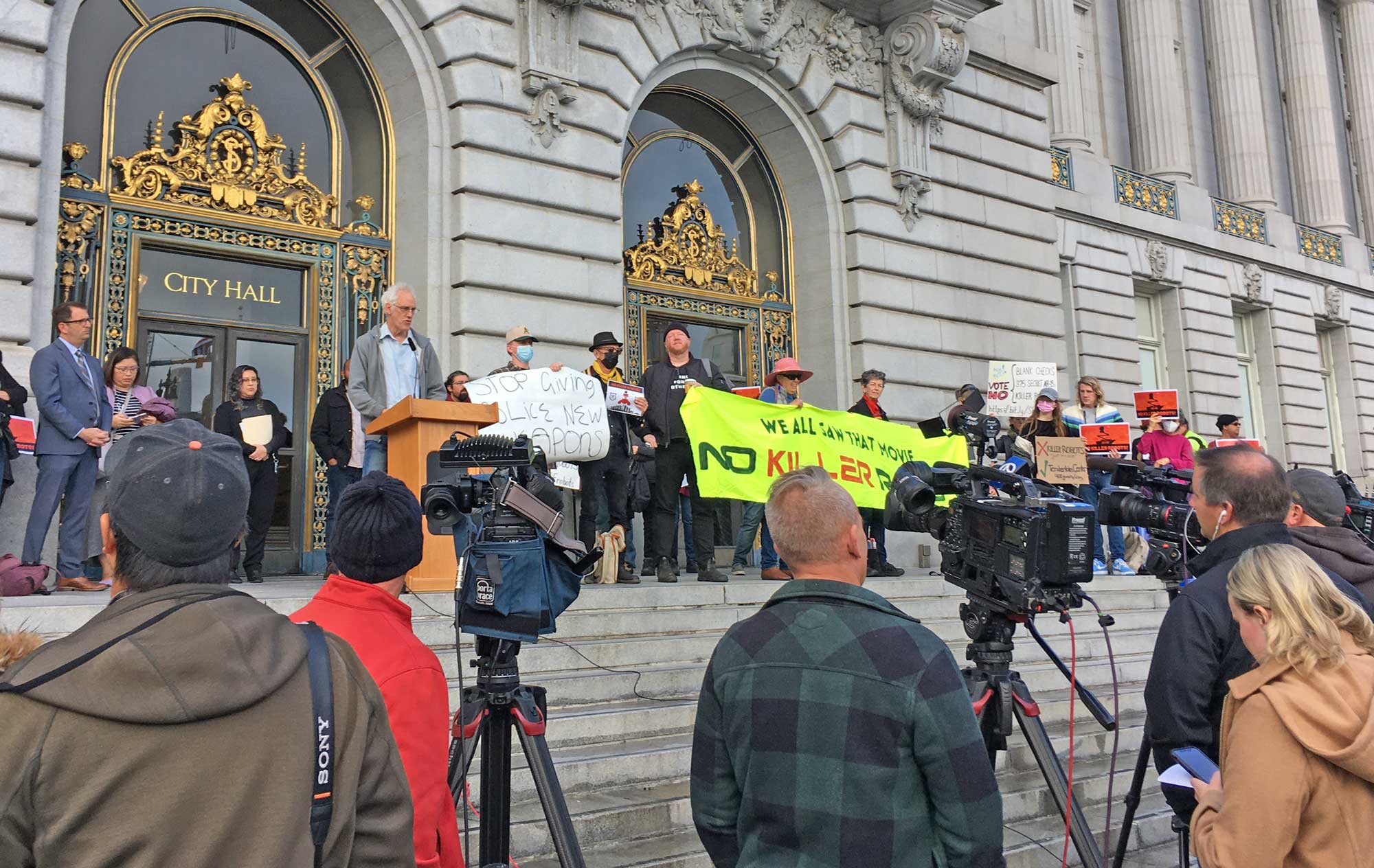
OAKLAND, CA (February 6, 2022). On January 26, attorneys for the American Friends Service Committee (AFSC) filed a lawsuit against the San Francisco Police Department for unlawfully denying a California Public Records Act request for information on the purchase and deployment of militarized equipment. The American Friends Service Committee is a Quaker organization that has worked for decades in California to end mass incarceration and police militarization. AFSC is being represented by Sara Kohgadai and Abenicio Cisneros in the litigation.
“We see every day the dangers that militarized police forces pose to communities – especially Black and Brown communities,” said John Lindsay-Poland, AFSC’s California Healing Justice Co-director. “We hope that this lawsuit, and our efforts to increase transparency and accountability for law enforcement agencies in San Francisco and across the state, will help mitigate the harm and violence enacted by police.”
Among the records sought by AFSC are records for the purchase of hundreds of assault rifles owned by SFPD. In an inventory it initially published to comply with state law, SFPD disclosed the possession of 608 such assault rifles, but in a revision of its military equipment policy, the Department reduced the number of assault rifles it disclosed by 375 AR15-type rifles. The state law also requires law enforcement agencies to publish the cost and use policies for assault rifles and other militarized equipment they own.
This lawsuit is part of an effort by AFSC to provide the public with information about militarized policing and organize for law enforcement agency compliance with AB 481 – a California law that puts limits on the acquisition and use of weapons by police departments. AB 481 requires police agencies to disclose what militarized equipment they have and submit use policies for a range of militarized gear acquired from any source. AFSC has filed more than 350 Public Records Act requests to police and sheriff departments since July 2021 for records related to militarized equipment.
“We requested records from law enforcement agencies across California to support community awareness and advocacy for transparency and demilitarization of policing in the state,” said Jennifer Tu, AFSC’s Ristad Fellow. “It is outrageous that San Francisco has refused to comply with this request. People have a right to know what weapons police possess and how they have used them.”
AFSC requested purchase and deployment records for assault rifles, ‘less lethal’ launchers and munitions, armored vehicles and other gear. More than 100 agencies have provided copies of detailed invoices for purchases, and dozens have provided incident reports or summaries deployments of the weaponry. The San Francisco Police Department did not respond to nearly 20 follow-up emails, and in four follow-up phone calls passed AFSC staff back and forth between its legal and media affairs units.
SFPD came to international attention in December when it proposed authorizing the use of robots for lethal force. After initially approving the proposed “killer robot” policy, the San Francisco Board of Supervisors reversed itself to prohibit deadly force by police robots.
Last year, AFSC successfully filed suit against the Orange Police Department for denial of records in a request identical to the request made to SFPD. Orange PD quickly released the records after AFSC filed its complaint.
AFSC is using the information gathered through public records requests to produce advocacy tools, a database, and an extensive report titled “Equipped for War: Exposing Militarized Policing in California.” AFSC will provide ongoing support to California communities seeking transparency and demilitarization of police.
###
The American Friends Service Committee (AFSC) promotes a world free of violence, inequality, and oppression. Guided by the Quaker belief in the divine light within each person, we nurture the seeds of change and the respect for human life to fundamentally transform our societies and institutions.